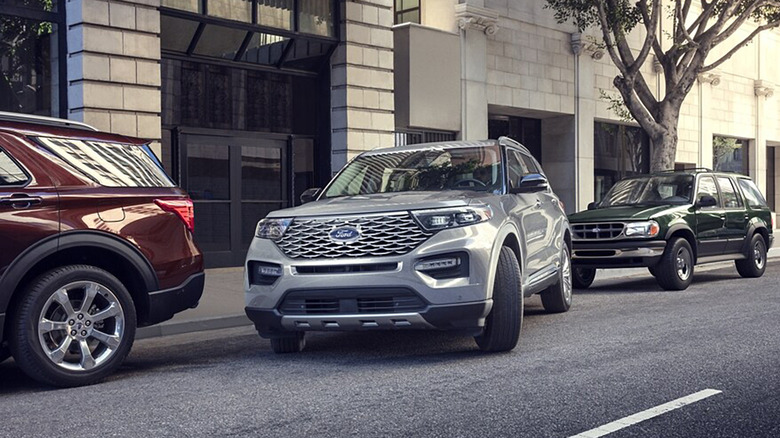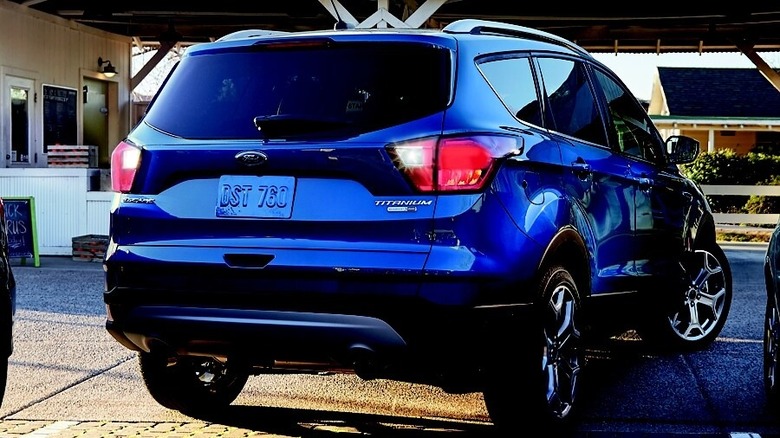Ford Is Getting Rid Of Its Self-Parking Assist Feature: Here's Why
Ford has been making automobiles since 1903, and in that time vehicles have evolved from primitive machines like the legendary Model T – which had a hand-crank starter and zero electronic components or safety features — to essentially moving computers with advanced active driver assist systems that help us avoid collisions, navigate busy roadways, and even park when our journeys have ended.
Ford's BlueCruise system beat out all other carmakers' active driver assist systems in a recent Consumer Reports study, but Ford will be dropping one feature from the system soon, although the reason is older than the Model T. In fact, Ford's reason behind this move is as old as the concept of business itself. Ford will save about $10 million a year for a total of about $2 billion by eliminating the active park assist feature from the BlueCruise suite. Bloomberg quoted Ford COO Kumar Galhotra saying on an industry conference call, "Very, very few people are using it so we can remove that feature. It's about $60 per vehicle." The self-park assist feature guided Ford drivers during parallel parking, a task that was found to be one of the most stressful for motorists in an MIT study. It's worth noting that Ford participated in that study along with MIT and later, a Ford dealership cited it in a blog post bragging about the same technology.
Almost half of American drivers fear parallel parking
The savings on Ford's end will come from all stages of the manufacturing process, from materials acquisition and freight to assembly. Galhotra said that the company used live information sent from its vehicles to help make this decision. "Connected vehicle data here is very important because it helps us see what we're providing, whether the customers are using it or not." Ford currently uses the active park assist feature on several of its vehicles, including the Escape, the Mustang Mach-E, and the best-selling F-150 pickup.
Ford claims not enough drivers were using the feature to keep it viable, but a survey by The Zebra found that 49% of Americans fear the stressful, traffic-obstructing task that is parallel parking. That figure is more than twice the number of drivers who are afraid of colliding with another car. It remains to be seen if other carmakers follow Ford's lead and drop their own parking assist systems. Currently, at least a half dozen other manufacturers offer the feature, including Tesla, BMW, Lexus, Mercedes, Audi, and Nissan.

